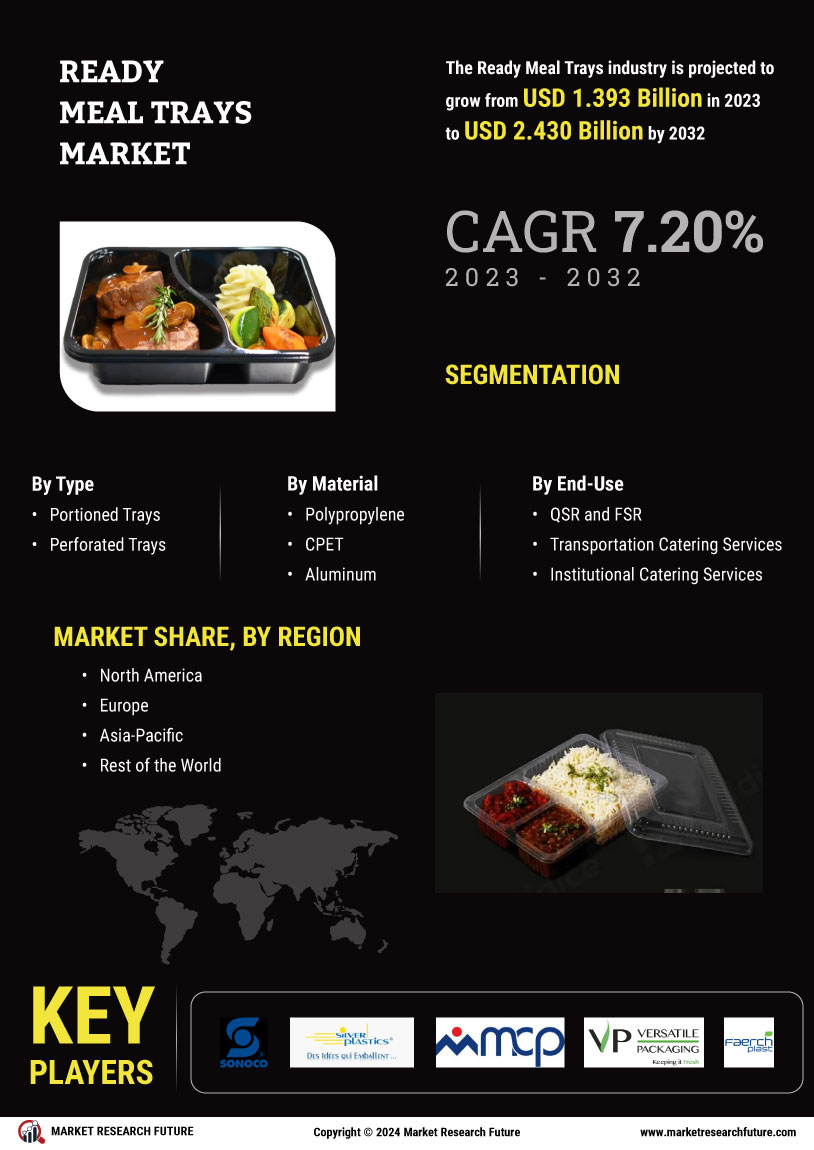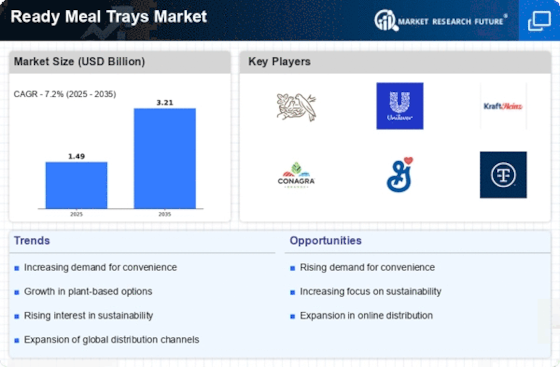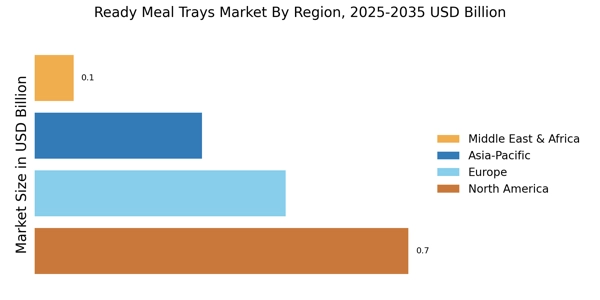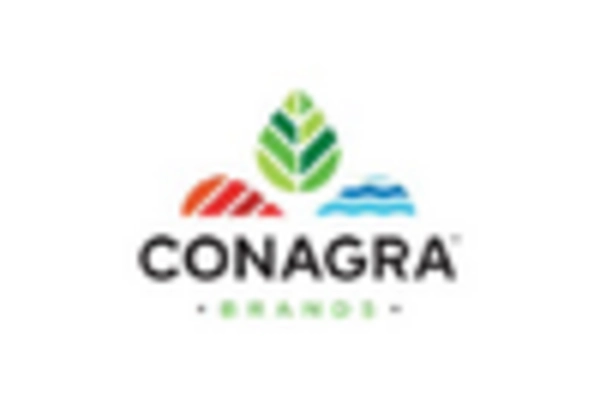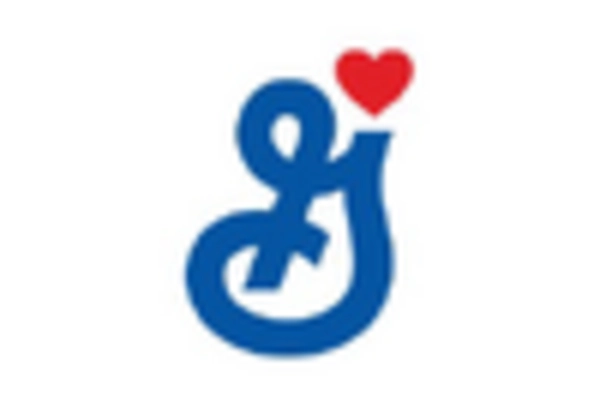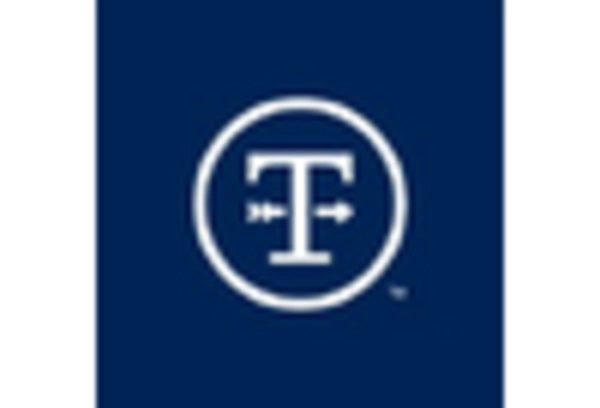Convenience and Time-Saving
The Ready Meal Trays Market is experiencing a surge in demand due to the increasing need for convenience and time-saving solutions among consumers. Busy lifestyles, characterized by long working hours and family commitments, have led individuals to seek quick meal options that do not compromise on quality. In fact, recent data indicates that approximately 60% of consumers prefer ready-to-eat meals over traditional cooking methods. This trend is particularly pronounced among urban dwellers, who often prioritize convenience over culinary preparation. As a result, manufacturers in the Ready Meal Trays Market are innovating to provide a variety of meal options that cater to this demand, ensuring that meals are not only easy to prepare but also nutritious and satisfying.
Increased Focus on Sustainability
The Ready Meal Trays Market is increasingly aligning with sustainability trends, as consumers become more environmentally conscious. There is a growing expectation for brands to adopt sustainable practices, including the use of eco-friendly packaging and ethically sourced ingredients. Recent studies indicate that approximately 50% of consumers are willing to pay a premium for products that are environmentally friendly. This shift is prompting manufacturers to explore biodegradable and recyclable packaging solutions, which not only appeal to eco-conscious consumers but also help reduce the environmental impact of food waste. As sustainability becomes a key differentiator in the Ready Meal Trays Market, companies that prioritize these practices are likely to gain a competitive edge, fostering brand loyalty among consumers who value environmental responsibility.
Growing Demand for Healthy Options
The Ready Meal Trays Market is witnessing a notable shift towards healthier meal options, driven by an increasingly health-conscious consumer base. Recent surveys suggest that nearly 70% of consumers are actively seeking meals that align with their dietary preferences, such as low-calorie, organic, or gluten-free options. This growing demand has prompted manufacturers to reformulate their offerings, incorporating fresh ingredients and reducing preservatives. The market for healthy ready meals is projected to expand significantly, with estimates indicating a compound annual growth rate of around 8% over the next five years. This trend not only reflects changing consumer preferences but also highlights the potential for innovation within the Ready Meal Trays Market, as brands strive to meet the evolving expectations of health-oriented consumers.
Rise of E-Commerce and Online Grocery Shopping
The Ready Meal Trays Market is benefiting from the rise of e-commerce and online grocery shopping platforms. As consumers increasingly turn to digital channels for their grocery needs, the accessibility of ready meal trays has improved significantly. Data indicates that online grocery sales have surged, with estimates suggesting a growth rate of over 15% annually. This shift not only provides consumers with a wider selection of ready meal options but also enhances convenience, as they can easily compare products and read reviews before making a purchase. Retailers in the Ready Meal Trays Market are capitalizing on this trend by optimizing their online presence and offering exclusive deals to attract consumers. This evolution in shopping behavior is likely to reshape the landscape of the Ready Meal Trays Market, making it more competitive and consumer-focused.
Technological Advancements in Food Preservation
Technological advancements in food preservation techniques are playing a crucial role in the Ready Meal Trays Market. Innovations such as vacuum sealing, modified atmosphere packaging, and advanced freezing methods have enhanced the shelf life and quality of ready meals. These technologies not only ensure that meals retain their flavor and nutritional value but also reduce food waste, which is a growing concern among consumers. As a result, manufacturers are increasingly adopting these technologies to improve their product offerings. The integration of smart packaging solutions, which provide real-time information about freshness and quality, is also gaining traction. This evolution in food preservation is likely to bolster consumer confidence in the Ready Meal Trays Market, as they seek meals that are both convenient and of high quality.
